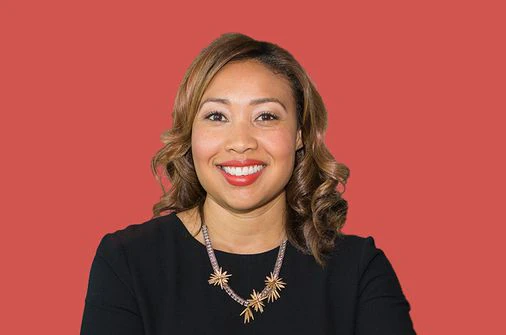One of the world’s largest tech companies is working with one of the newest venture capital firms in Boston to diversify the local start-up talent pool.
Google and Visible Hands, a two-year-old VC firm dedicated to helping underrepresented founders, announced on Tuesday it would jointly conduct a program to help Latinx entrepreneurs build new businesses. Dubbed VHLX, the idea is to train 20 selected participants on the ins and outs of forming a start-up, building a business, and attracting funding. Applications will be accepted until June 24.
While about 12 percent of Massachusetts residents are Latinx, companies with Latino founders accounted for only 3.9 percent of the venture capital invested in the state between 2015 and August of 2020, according to a report by Crunchbase. That was a higher percentage than in California (1.2 percent) and New York (2.2 percent), but still a long way from representative.
“There’s a real need to make sure we have inclusive opportunities available,” Yasmin Cruz Ferrine, general partner and cofounder of Visible Hands, said.
Visible Hands is a relatively new player on the Boston scene. Two years ago, Cruz Ferrine, who got into community investing during seven years at John Hancock Financial Services, founded the firm with Daniel Acheampong, who was advising startups at MIT, and Justin Kang, who was the executive director of City Awake, a Boston Chamber of Commerce effort aimed at helping young professionals.
When the firm opened applications for 35 spots in its first start-up accelerator last year, it got 911 applications. For its second class, 1,413 applied.
“The demand and amount of entrepreneurs seeking support, we really can’t fulfill with our flagship program,” Cruz Ferrine said. “We’ve got quite a backlog of talent there.”
Other efforts also are underway with a similar mission. The New England Venture Capital Association earlier this year spun out its program, Hack.Diversity, which offers people of color fellowships with tech companies in the area.
The new VHLX program, which is virtual and will be conducted in a mix of Spanish and English, will last 20 weeks with a goal of helping the prospective founders build an initial product and attract early customers or users. Participants also get a stipend of $10,000 and a potential investment at the end of the program of as much as $150,000.
“Access to capital is the fuel that makes start-ups go, access to community keeps them running, and access to mentorship helps them navigate the road,” Kaili Emmrich, head of North America for Google for Startups, wrote in a blog post accompanying the VHLX announcement. “But access to the resources needed to grow one’s business are still not evenly distributed.”
Locally, Daniel Navarro on the Google for Startups team in Cambridge is working with Visible Hands on the program.
One aspect of the program will be weekly cafecitos, or informal meetings over coffee, with Latinx founders who have created businesses with at least $1 million in revenue. “You can’t be what you can’t see,” Cruz Ferrine said. “That weekly dose of inspiration and real talk will be a critical part.”
Google also will be conducting workshops teaching its strategy of establishing benchmarks it is calling “objectives and key results,” known as OKR in the tech community.
VHLX will include aid on a sometimes-overlooked aspect of running a start-up: mental well-being. Clinical psychologists and wellness coaches will work with entrepreneurs to create a holistic plan for handling start-up life. The plan will help them “navigate the very high highs and sometimes low lows of entrepreneurship,” Cruz Ferrine said.
Since part of the program will overlap with Hispanic Heritage Month in the fall, participants also will have thematic celebrations. “We’re going to honor the Latinos that came before us and eat the food and dance and play the music that inspires us and connects to our cultural heritage,” Cruz Ferrine added.
Aaron Pressman can be reached at aaron.pressman@globe.com. Follow him on Twitter @ampressman.
Credit: Source link


Comments are closed.